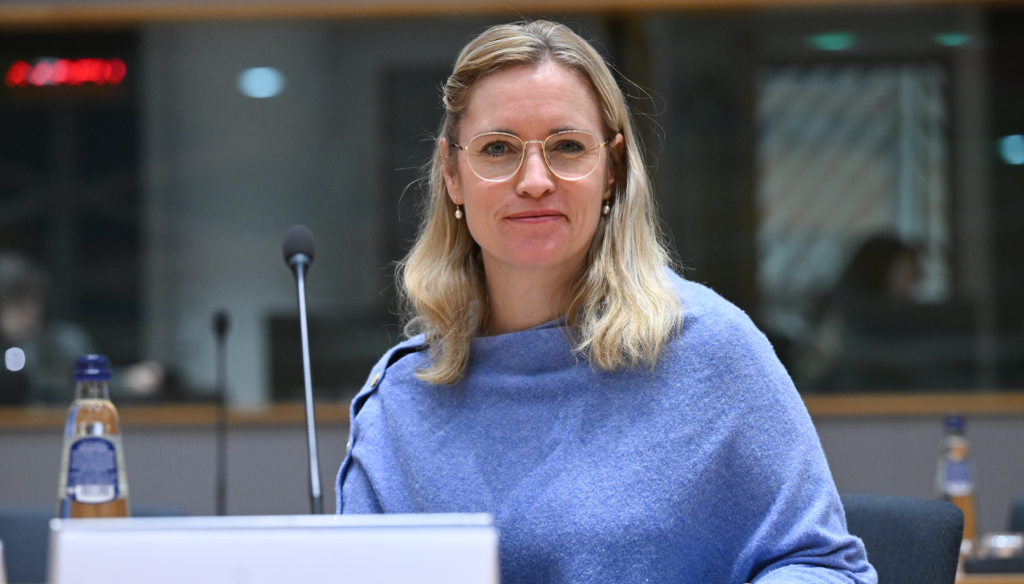COPENHAGEN – The EU’s push to boost military expenditure could undermine the bloc’s financial stability unless EU countries curb soaring deficit and debt levels, according to Denmark’s economy minister.
Stephanie Lose told Euractiv that Europe must ramp up defence spending “very quickly” to deter Russia’s growing military threat, but warned this outlay may pose an additional “risk” to the bloc’s economy, which is already reeling from the twin impact of US tariffs and fierce Chinese competition.
“At the same time as there is this unrest in the economies across the world, [we] need to boost defence spending very quickly,” said Lose, whose country took over the rotating Council presidency from Poland earlier this month.
“That is a risk factor for our economies, because if we don’t combine that with wise decisions on ways to a more sustainable path for public finances, then I guess it will be a problem in terms of increased debt levels and unsustainable finances,” she added.
Lose’s comments come after NATO members last month pledged to increase military spending to 3.5% of annual GDP by 2035, almost double the US-led alliance’s previous 2% target.
The 32-member military bloc – which includes 23 of the EU’s 27 member states – also agreed to allocate an additional 1.5% of total output to security-related infrastructure. Spain, however, secured an opt-out allowing it to spend just 2.1% in total on defence.
Sixteen EU countries – including Denmark – have also heeded the European Commission’s recent call to activate the “national escape clause,” a key component of President Ursula von der Leyen’s €800 billion “ReArm Europe” plan to ward off Moscow’s threat to the continent.
Activating the clause allows capitals to spend an additional 1.5% on defence without contravening the bloc’s fiscal rules, which limit member states’ deficits to 3%.
However, France, Italy, and Spain – the EU’s second, third, and fourth-largest economies – have refrained from invoking the clause amid concerns about their already high budget deficits.
France and Italy are also among nine EU countries currently subject to a so-called “excessive deficit procedure,” or formal reprimand, by the Commission for breaching the bloc’s 3% fiscal threshold.
Lose, who will attend her first meeting of European finance ministers as Council chair on Monday, said she couldn’t “judge” France, Italy, and Spain’s decisions not to activate the clause, as this depends on their underlying motivations.
“On one side, it’s good if you adhere to sound public finances: so if it means that they’re exploring ways to fulfil the 3.5% NATO goal without being on an unsustainable path to a higher extent than they already are, then that’s, of course, great news,” she said.
“[But] if it symbolises that there won’t be any room at all to boost defence spending, then it’s, of course, a problem,” she added.
(mm)
